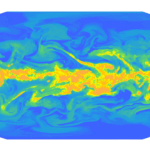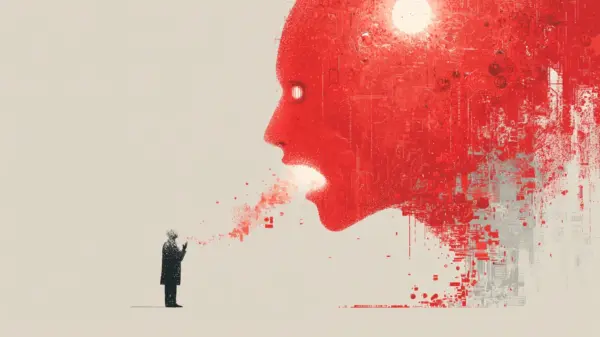In a surprising turn of events for the literary community, the works of two acclaimed New Zealand authors, Stephanie Johnson and Elizabeth Smither, have been disqualified from the 2026 Ockham Book Awards due to the use of artificial intelligence (AI) in their cover designs. Johnson’s collection of short stories, Obligate Carnivore, and Smither’s collection of novellas, Angel Train, were submitted for the NZ$65,000 fiction prize in October but were ruled out shortly afterwards as the awards committee updated its guidelines regarding AI usage.
Quentin Wilson, the publisher for both authors, explained that the awards committee revised its criteria in August 2023, well after the cover designs had been finalized for submission. Wilson stated, “It was, therefore, far too late for any publisher to have taken this clause into account in their design briefs.” This late amendment has left both authors and their creative teams heartbroken, as they find their literary accomplishments overshadowed by a technology debate that has nothing to do with the quality of their writing.
Stephanie Johnson expressed her disappointment, acknowledging the growing concerns about AI in creative fields while emphasizing that her writing should not be penalized due to the cover design. “I’d be lying if I said I wasn’t sad about it,” she told the Guardian. Johnson’s work, her 22nd published book, holds significant personal value, having been crafted over two decades. She admitted to being unaware that AI had been involved in the design of her cover, which showcases a cat with human teeth. “I just thought it was a photograph of a real cat,” she said, reflecting on her struggles to distinguish AI-generated images.
Similarly, Elizabeth Smither voiced her concerns regarding the impact on the design team who dedicated hours to create her book cover, which features a steam train and an angel inspired by Marc Chagall’s artwork. Smither lamented, “It is them I am most concerned about: that their meticulous work … is being disrespected.” Both authors noted that in prior judging capacities at the Ockham Awards, the focus was intensely on the content rather than the aesthetic elements.
The decision to disqualify these works aligns with increasing scrutiny over AI’s role in creative industries. Nicola Legat, chair of the Ockham Book Awards trust, asserted the organization’s firm stance on AI, stating, “The trust does not take lightly a decision that prevents the latest works of two of New Zealand’s most esteemed writers from being considered for the 2026 award.” She emphasized that the criteria must remain consistent across all entries, regardless of an author’s status or reputation, as a measure to protect the creative and copyright interests of New Zealand’s writers and illustrators.
As AI technology continues to evolve, Legat acknowledged the potential need for the awards trust to revisit and refine its guidelines further. Wilson pointed out that many industry-standard tools, such as Grammarly and Photoshop, incorporate AI technologies, underscoring the necessity for carefully constructed protocols that reflect the realities of modern publishing. “As an industry, we must work together to ensure that this situation does not happen again,” he said.
The disqualification of these works not only highlights the complexities surrounding AI in creative fields but also raises vital questions about the future of literature and the role of technology in artistic expression. As the landscape of publishing continues to shift, both authors and industry leaders must navigate the delicate balance between innovation and tradition.
See also OpenAI’s Fidji Simo Reveals Strategies to Transform ChatGPT into $10B Powerhouse
OpenAI’s Fidji Simo Reveals Strategies to Transform ChatGPT into $10B Powerhouse Maryland Police Criticize AI Weapon Detection Software Omnilert’s Effectiveness Amid Safety Concerns
Maryland Police Criticize AI Weapon Detection Software Omnilert’s Effectiveness Amid Safety Concerns Google Launches AI-Powered Travel Search with Visual Itineraries and Autonomous Booking
Google Launches AI-Powered Travel Search with Visual Itineraries and Autonomous Booking Bezos’ Project Prometheus Aims to Transform Manufacturing AI Alignment Challenges
Bezos’ Project Prometheus Aims to Transform Manufacturing AI Alignment Challenges Google Launches WeatherNext 2 AI, Delivers 8x Faster and More Accurate Forecasts
Google Launches WeatherNext 2 AI, Delivers 8x Faster and More Accurate Forecasts









































































